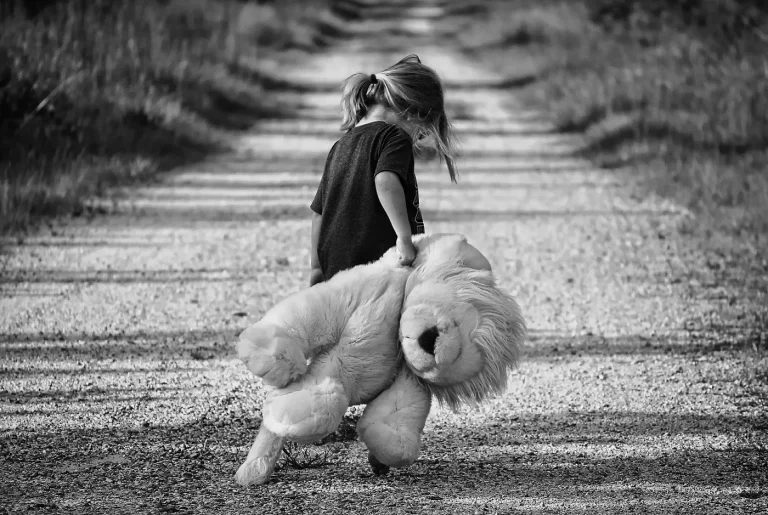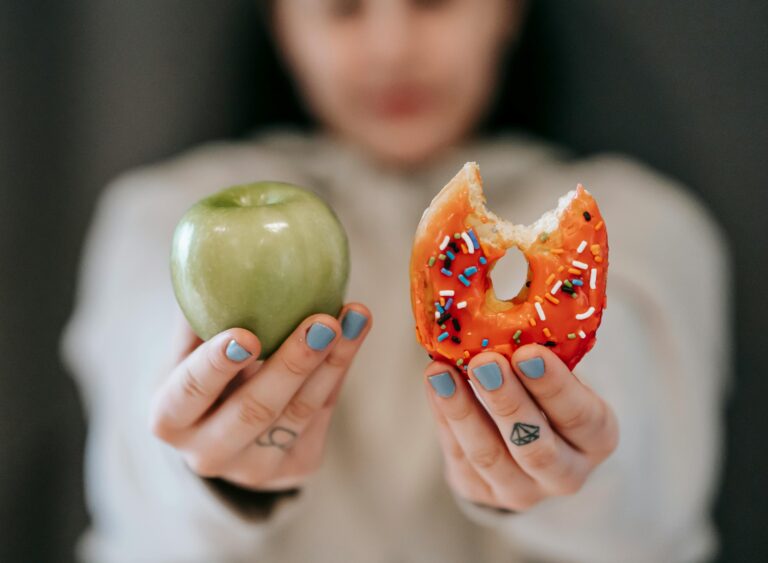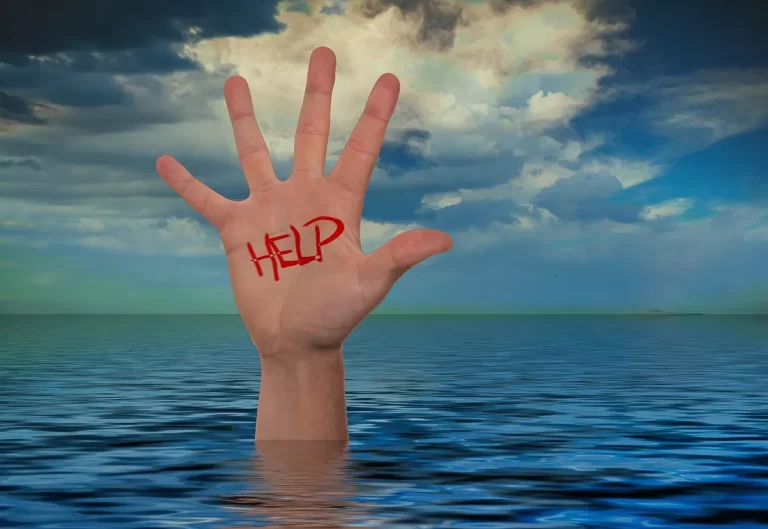When I was a child, I forgot to close the refrigerator door all the time. I was a very absent-minded youngster, always immersed in my thoughts, paying little attention to the world outside.
Understandably, my parents got frustrated. So they started to yell at me. A lot. I tried to explain that I wasn’t doing it on purpose. It just happened to me, so yelling at me afterward didn’t make the slightest difference. I wasn’t doing it intentionally, so I couldn’t just decide to stop. And when they yelled at me after, there wasn’t a way to change my past activities. The only thing I could do was to feel guilty.
I tried to explain that their yelling didn’t help to keep the door closed. In fact, it was doing the exact opposite. The more my parents yelled at me, the more I retreated inside my mind — and the more I forgot to close that door.
At 6 years old, I already had a better intuitive grasp of how psychology works than my parents did. I understood that the yelling was counterproductive. They didn’t, so it continued.
Mind you, it wasn’t that we were poor. We were pretty well off when I was little. So, while the open fridge door was a waste of electricity, it wasn’t like we weren’t going to eat that day if it happened. It was frustrating, but not existentially threatening. It was an inconvenience, not a disaster. But my parents behaved as if it were the latter.
I was hurt. I was frightened. I retreated further inside myself. And I forgot to close that damned fridge door more and more.
Fast forward 30 years. I’m living with my partner now. And when I moved in, I — guess what — forgot to close the fridge door all the time. But his reaction was very different than that of my parents. He just smiled at me every time and jokingly said something along the lines of, “You know, my love, the food likes being cold.”
He made light of it because he didn’t want me to feel bad. He didn’t say, “It’s your fault!” He didn’t say, “You are terrible — why can’t you just remember?” He didn’t yell at me. He never yells at me. He just gently reminded me that the next time, I could do better.
And you know what? I stopped forgetting to close the fridge door. Just like that. It took just a few respectful, calm, non-aggressive reminders to change my habits. In a few months, he accomplished what years of yelling didn’t.
Don’t guilt yourself into changing your behavior — it won’t last
There is a lesson in that. And it’s not only about talking to your kids, or other people in your life. You can also apply it in how you talk to yourself. Do you often get mad at yourself when you make a mistake? Do you scold yourself? Do you tell yourself that you are useless? Do you echo what your parents said to you when you were little? Just realize that it doesn’t accomplish anything. You will probably keep doing all the things that make you feel guilty.
Guilt doesn’t help you to change a behavior — ironically, it may even reinforce it. It’s because guilt creates a negative self-image in your mind. And when you believe you are good for nothing, it will probably become a self-fulfilling prophecy.
“Suppose in a moment of weakness you indulged in eating a chocolate-glazed donut for breakfast. For the rest of the day, you feel guilty, beating yourself up in your mind for having violated your diet. The more negative thoughts you have about yourself, the more guilty you feel, and the more likely you’ll be to eat more to live down to your self-perception.” writes Jeffrey S. Nevid, Ph.D., ABPP.
Maybe you believe that without guilt, you won’t have any motivation to change. “Why would I do anything differently if I wasn’t angry with myself over how things are now?” you might think. But in fact, negative motivation is the worst kind of motivation. Negative emotions like anger, fear, or guilt may help kick-start you into making a change, but chances are it won’t last for long. This is because by guilt-tripping yourself you are just draining your willpower. That leaves less “fuel” for the actual change you desire.
“Surprisingly, it’s forgiveness, not guilt, that increases accountability. Researchers have found that taking a self-compassionate point of view on a personal failure makes people more likely to take personal responsibility for the failure than when they take a self-critical point of view. They also are more willing to receive feedback and advice from others, and more likely to learn from the experience.”
-Kelly McGonigal, The Willpower Instinct: How Self-Control Works, Why It Matters, and What You Can Do To Get More of It
Another example: when you went to school, did you have a teacher that you were afraid of? Someone who put you down when you made a mistake? Someone who scolded you when you weren’t up to their standards? And did you have a teacher that praised you and helped you be a better version of yourself? From which one you have learned more?
Robert Puff, Ph.D. uses this example of a good and bad teacher in Kindness: The Currency of Change: “Say we have a choice between two teachers, both very knowledgeable in their field but each with a different method of teaching. Now, let’s say we want to learn how to do yoga. Teacher Number One criticizes us every time we don’t get a pose right. Teacher Number Two uses kindness, love, compassion, and gentleness. Which teacher would we prefer? Of course, we would choose the latter because that one will be more enjoyable and we will learn faster. Our minds are the same. If we want to learn to change, we will have a more enjoyable time and learn faster if we use kindness on ourselves.”
In the same article, he uses another example of alcoholics that are more likely to break their addiction and prevent relapses when they learn to take positive steps in the Alcoholics Anonymous meetings. On the other hand, they are more likely to keep drinking if they just beat themselves up over their habits. The same principle applies here: If you are just angry with yourself for drinking, all your thoughts and energy are focused on drinking, not on the change. You have to find a positive focus if you want to turn things around.
In conclusion: being angry with yourself doesn’t change anything. Kindness does. So, the next time you make a mistake, just smile warmly at your inner child and tell yourself, “It’s OK. Next time, I will do better.” Forgive yourself and move on. You will be surprised how quickly your habits will change. All it takes is showing yourself kindness and compassion instead of anger.

Do you want to see more blog posts like this? Subscribe to my newsletter and get them right into your mailbox!
Helen Olivier is a neurodivergent writer, AuDHD explorer, and professional overthinker with 40+ years of lived experience in the wonderfully weird world of ADHD + autism. She writes for people who’ve been told they’re “too much” or “not enough,” offering comfort, clarity, and the occasional executive dysfunction survival hack. Her blog is her way of turning daily chaos into useful insights for other neurodivergent folks.
This blog is based on personal experience and is not medical advice. Always consult a qualified healthcare professional before making changes to your health, treatment, or medications.
Helen Olivier is a neurodivergent writer, AuDHD explorer, and professional overthinker with 40+ years of lived experience in the wonderfully weird world of ADHD + autism. She writes for people who’ve been told they’re “too much” or “not enough,” offering comfort, clarity, and the occasional executive dysfunction survival hack. Her blog is her way of turning daily chaos into useful insights for other neurodivergent folks.
This blog is based on personal experience and is not medical advice. Always consult a qualified healthcare professional before making changes to your health, treatment, or medications.





